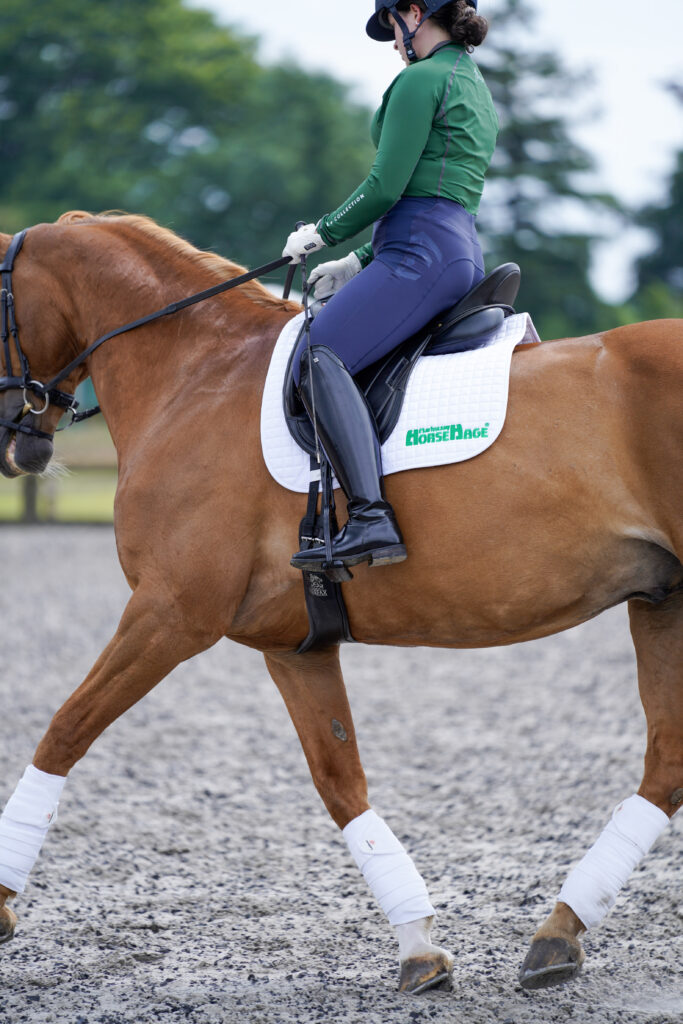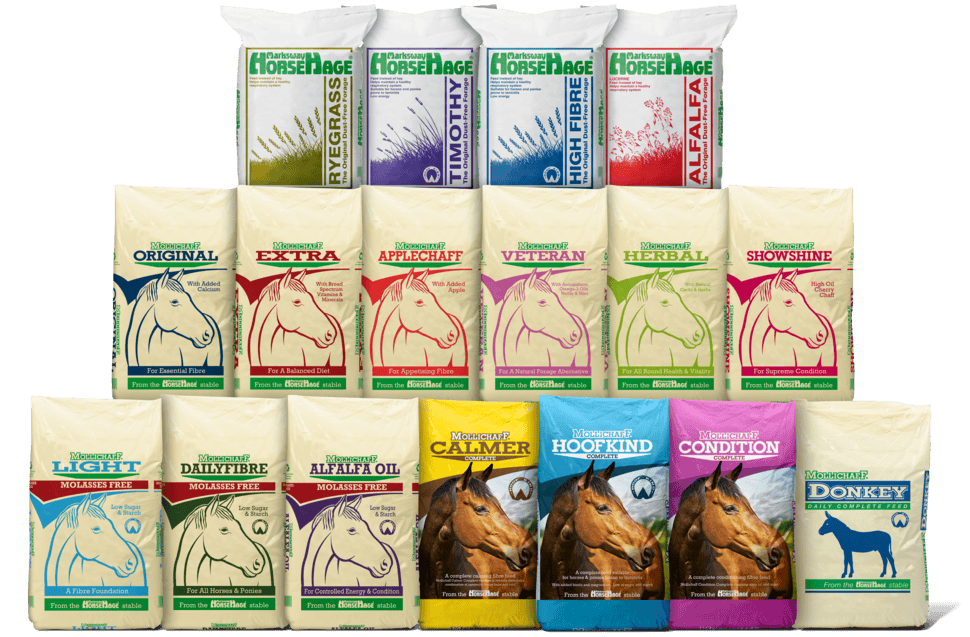
An individual horse’s general temperament or type can’t be altered with their feed, however, what they eat can affect their condition and energy levels. Some horses are just naturally fizzy, although consideration to the diet factors may help reduce spookiness, anxiety and reactivity and may help to promote a calmer outlook.
What Does Fizzy Horse Mean?
Fizzy is a word used to describe horses that may naturally exhibit excitable behaviours or have an excess of energy which may make them difficult to manage – especially for less experienced riders. You may have also heard horses like these described as hyperactive or hot, amongst many other synonyms.
Typically, fizzy horses often spook, buck, rear, jog or refuse to stand still in response to a rider’s attempt to control the horses’ over-exuberant behaviours.
Fizzy horses can also experience high levels of anxiety and stress, especially when travelling or competing, which can result in loose droppings and easy weight loss. Digestive supplements can help horses such as these retain their digestive health during stressful periods.
What Makes a Horse Fizzy?
Aside from being a natural characteristic of the individual, environmental factors can cause a horse to exhibit fizzy behaviour. Before altering a fizzy horse’s diet, it’s worth checking that the behaviour isn’t occurring as a result of them being in pain. Poorly fitting tack, dental issues, discomfort from digestive disorders or back or limb injuries can all be possible sources of pain that may result in unusual or fizzy behaviours.
Consider the situation in which your horse exhibited the behaviour. Some horses find a change of environment, such as going to a show or hacking with a larger number of horses than normal, very exciting or stressful. Changes in weather can also have an effect with some horses being reactive on windy or cold days.
Horses that are not regularly exercised and are stabled for long periods of time can also become fizzy as their excess energy cannot be used up. They may also be experiencing frustration due to confinement. This can be addressed by increasing the amount of exercise they do or turning out for longer.
Review your horse’s diet, including the forage you provide your horse, to ensure you are not providing more energy than the horse needs to maintain weight at their current workload level. Supplying an excess of calories or overfeeding can result in a horse being fizzy or more excitable whilst others may gain weight and become less energetic.
What Food Makes Horses Fizzy?
It is thought that fast-release energy sources, such as starch, can contribute to fizzy behaviour in horses.
Starch is broken down quickly into glucose and passed through the horse’s digestive system to the blood stream rapidly resulting in a peak in blood glucose which may be one explanation as to why the horse is more reactive and spooky. Some horses do not appear to be affected by the fizzy effects of starch. The effect of starch on behaviour is not fully understood but other hypotheses suggest that the alterations in behaviour are contributed to by brain chemistry and/or acidity causing gut dysfunction amongst other factors.
Sugar is also a source of fast release energy. Grass and forage are normally the main source of sugar in a horse’s diet. Horses are well adapted to digesting sugar, although excessive intakes of sugar, such as during the spring when there tends to an abundance of fresh grass, may contribute to excitable behaviours.
High Fibre Diet for Fizzy Horses
Oil and high fibre foods provide slow-release energy rather than fast-release energy, and should form the basis of a fizzy horse’s diets alongside other essential nutrients, vitamins and minerals.
High quality forage and pasture grass are digested at a slower pace than grain-based feed, taking days to digest completely as opposed to a matter of hours. This provides the horse with a steady, reliable energy level, without the sugar rush.
Therefore, a high-fibre diet containing high-quality forage and suitable pasture are the best options for hot horses, keeping them calm and responsive. Providing a broad spectrum vitamin and mineral source in a suitable high fibre chaff will encourage a balanced diet for optimum health.
Digestive supplements can help maximise fibre digestion for poor doers and stressy horses, you might consider using them on a regular basis or on a short-term basis a few days before and after a stressful event.
The most important thing to take away from this blog is that your horse’s calorie intake and energy output should balance out as closely as possible. If not, you’re likely to be providing your horse with more energy than they know what to do with.
Calming Complete Feed for Fizzy Horses from HorseHage and Mollichaff
Mollichaff Calmer Complete is a unique complete feed formulated with high quality ingredients aimed at decreasing anxiety and exerting a calming influence making it ideal for those that are excitable or nervous.
Low in both starch and sugar, it also contains a carefully formulated combination of camomile, lemon balm and mint.
Every horse is different and thus will need to be treated differently, if you need some advice on what the best calming feeds for horses get in touch with our dedicated HorseHage Helpline on 01803 527274 and our expert team will be happy to advise.


